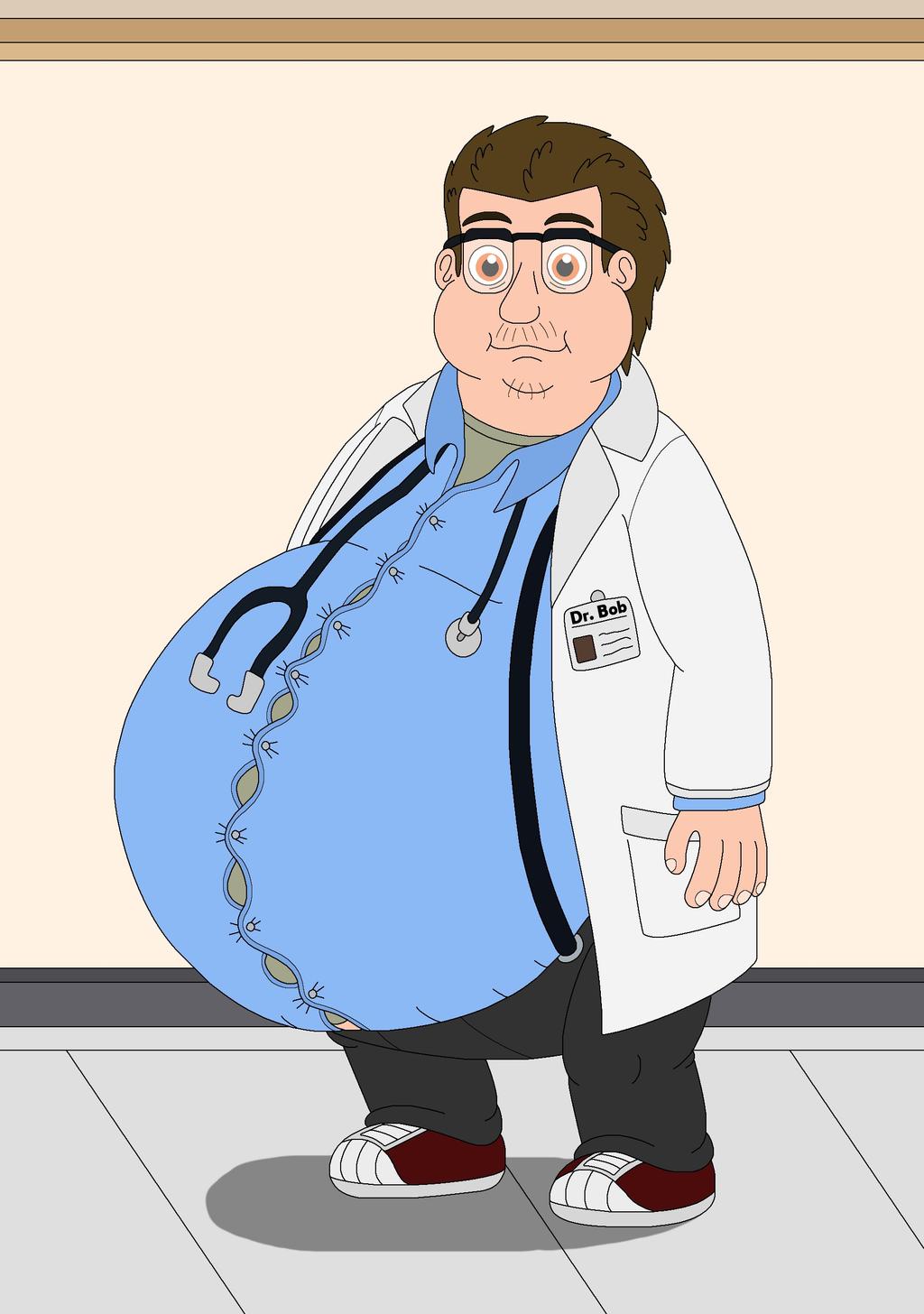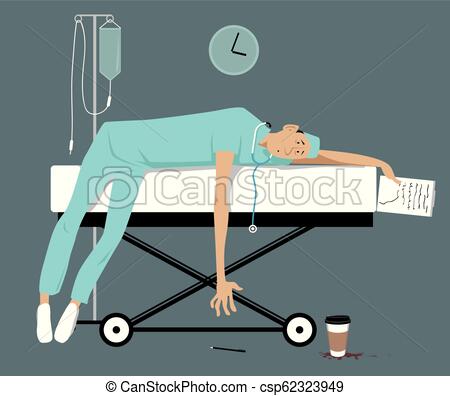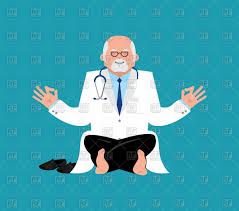
 The medical profession in India is one of the most stressful careers. The increasing patient demand in hospitals and clinics can lead to increased stress among physicians. This over-burden can lead physicians to a state of burnout.
The medical profession in India is one of the most stressful careers. The increasing patient demand in hospitals and clinics can lead to increased stress among physicians. This over-burden can lead physicians to a state of burnout.
Besides the obvious effects on the health and happiness of doctors, physician burnout leads to low-quality patient care, medical errors, and costs the healthcare system billions of dollars a year. For instance, you are working at a hospital. It is the beginning of a week, but you are feeling a negative and critical attitude to work. This can adversely affect patient care and medical errors. Though everyone in every workplace is at risk for professional burnout, healthcare workers are at more risk because of the nature of the work.
What is burnout?
Burnout is characterized by a state of emotional, mental and physical exhaustion caused by excessive and prolonged stress. Although it can occur in any field, burnout occurs most amongst people in the caring professions of medicine, nursing, social work, counselling and teaching.
Incidences are even greater among specialities at the front line of care such as family medicine, emergency medicine and general internal medicine. The danger lies in the fact that physicians who suffer from burnout are more disposed to errors, provide less quality of care and receive lower patient satisfaction. It can lead to higher rates of depression, alcoholism and even suicide.
Causes of Burnout
Burnout often buds from your job. From a hardworking officer, who hasn’t had a vacation for years to an undervalued worker, anyone who feels overworked and undervalued can be at risk of burnout. According to researchers, six components of the workplace environment that can contribute to burnout include:
* Workload
* Control
* Reward
* Community
* Fairness
* Values
The main reason for the burnout among Indian doctors is the poor doctor-patient ratio. The intense patient workload with limited doctors results in long working hours which leaves them with no time for family life and rest.
Symptoms of Burnout
According to the World Health Organisation(WHO), the burnout syndrome was characterised by:
1) feelings of energy depletion or exhaustion
2) increased mental distance from one’s job or feelings of negativism or cynicism related to one’s job
3) reduced professional efficacy.
Exhaustion from burnout could lead you to be easily upset, have trouble sleeping, get sick more often, and struggle to concentrate.
Cynicism is sometimes called depersonalization in this context because it’s categorized by feeling alienated from the people you work with and lacking engagement in your work.
Finally, inefficacy refers to a lack of belief in your ability to perform your job well and a decrease in achievement and productivity
Ways to avoid burnout
Like it takes time to cast its shadows on a person, recovering from burnout also takes time and patience. Regaining your balance will take longer than you expect, but the outcome would be worth the time. Healing from burnout requires rehabilitating your mind, give yourself the time and space you deserve. Here are some ways that could help you to overcome burnout.
1. Take a break

Burnout is a form of exhaustion. Working too long without taking a break can exhaust you mentally and physically. The best way to deal with this is by taking timely breaks for a vacation or spending quality time with your dear ones. You might be not able to take a long vacation or break, right? No need to worry. You could take a weekend off. Use that short span of time to recharge your mind and spend some time for yourself or family. Remember, turn off email and mobile notifications, and focus on enjoying time off.
2. Rest and Relax

Rest is one of the best ways that can lower stress. Rest doesn’t always mean just sitting simply and relax. It can also include walking or simply tuning out. Emerging out of the working environment itself can help rejuvenate your mind and body. Scheduling daily rest time gives you something to look forward to. It can ease your work as well.
3. Exercise

Exercise can help alleviate stress and create a sense of well-being. You will also experience increased energy and productivity when you exercise regularly. What’s more, regular exercise will help you to sleep peacefully as well.
Studies suggest that doctors perceived to be overweight or obese may be vulnerable to biased attitudes from patients and that providers’ excess weight may negatively affect patients’ perceptions of their credibility, level of trust and inclination to follow medical advice. Researchers have also found that working out in a group lowers stress by 26 per cent and significantly improves quality of life.
4. Sleep

Sleep is a powerful stress reducer. Following a regular sleep-routine calms and restores the body, improves concentration, regulates mood, and sharpens judgment and decision-making. You are a better problem solver and are better able to cope with stress when you’re well-rested.
Also, in between the stressful working hours, taking a power nap can make a great difference. Numerous research findings so far support the idea that that inadequate sleep is detrimental to both workers and the workplaces. A growing body of research finds that a short daytime nap holds benefits for employees and employers. Naps offer improved working memory, better performance and reduced anxiety and depression, among a host of other advantages.
5. Read books

Believe it or not, books can heal people suffering from burnout. According to a recent study, six minutes of sustained reading each day can reduce a person’s stress level by 68 per cent, thereby helping individuals to clear their minds and minimize bodily tension. Whenever feeling stressed out, choose a book and read. Psychologists believe this is because the human mind has to concentrate on reading and the distraction of being taken into a literary world eases the tensions in muscles and the heart.
6. Try Meditation

If you are feeling worn out or disturbed, practice meditation once in a while. Meditation not only decreases the stress but also creates harmony in your relationships. Research has repeatedly shown that mindfulness meditation and relaxation techniques can help moderate the influence of stress. Meditation makes your mind calm and if you are calm, it would definitely reflect on your work too.
7. Music

Tune your favourite beats and go with the rhythm! Music is a good stress reliever. For instance, listening to soothing music when you are exhausted, can change your mood. Listening to music has been shown to improve memory functioning, increase the rate of healing, improve your workouts and more. Music and musical training have also been shown to protect the ageing brain and keep it healthy. For pace-based exercises like running or weight-lifting, music can help regulate rhythm and signal to the brain when the body should move. This signal helps us to use our energy more efficiently, so we’re not exhausting ourselves too soon.
According to a study, everyday music listening during early stroke recovery offers a valuable addition to the patients’ care by providing an “individually targeted, easy-to-conduct and inexpensive means to facilitate cognitive and emotional recovery.
Burnout among doctors is an important social issue since it directly affects patients. But whatever the reason for burnout may be, the above-mentioned ways can help you overcome burnout. Choose any stress-relieving activities as you like, but make sure you prioritize some kind of recovery every week.
“Take care of yourself so you can take care of others”. As doctors, it’s your duty to take care of others. But you yourself need to take care first to fulfil that.
Source: Carecloud, HappyMD, Psychology Today, NCBI, Mindtools, Benefits guide, lifehacker.com, Deccan Herald.